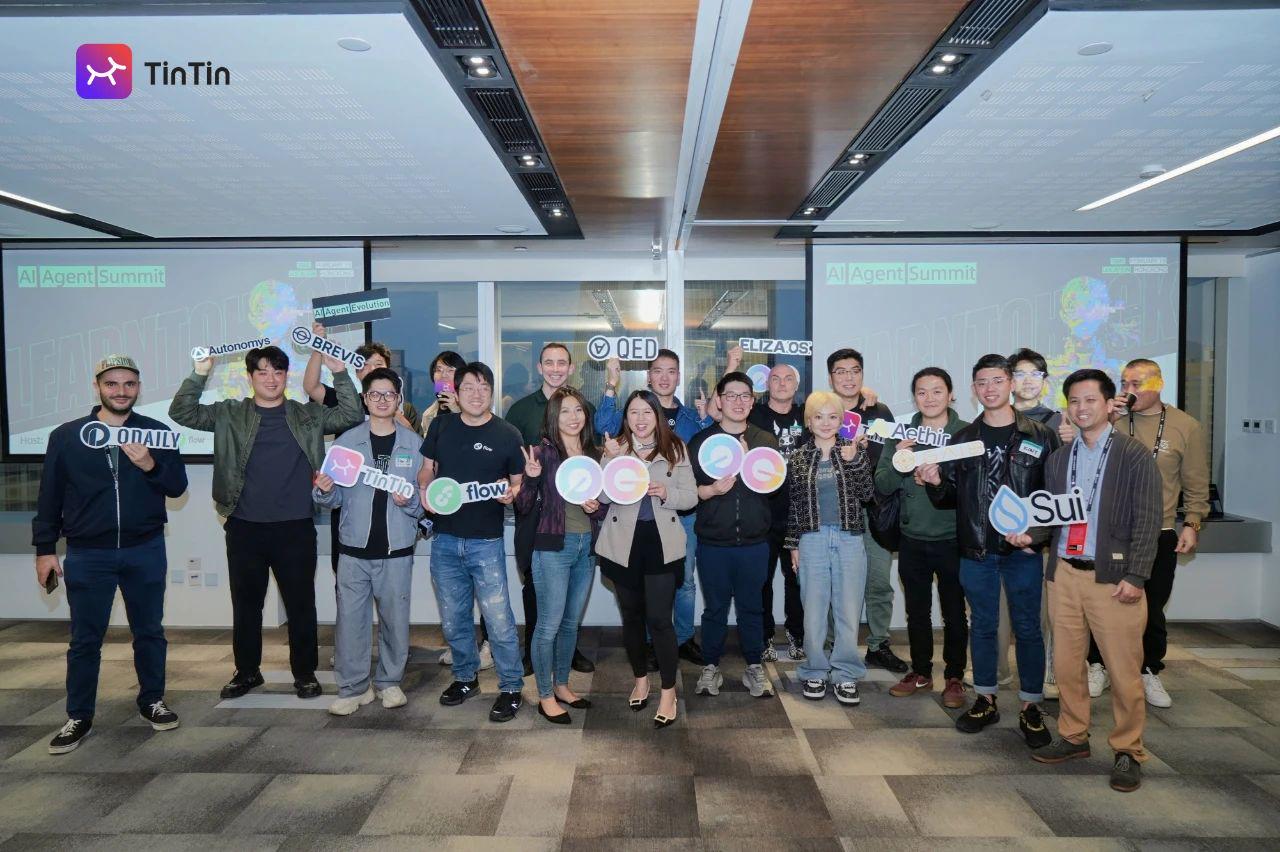In recent years, AI technology has made breakthrough progress in automation, data processing, smart contracts and decentralized networks, and AI Agent is becoming a key driving force in this wave. According to the Global AI Development White Paper, by 2025, the global AI market size will exceed 6 trillion US dollars , with an average annual compound growth rate (CAGR) of 30% from 2017 to 2025. In the Web3 field, AI agents are gradually integrating core technologies such as smart contracts, decentralized AI computing and privacy protection, driving a new round of changes in the Web3 ecosystem.
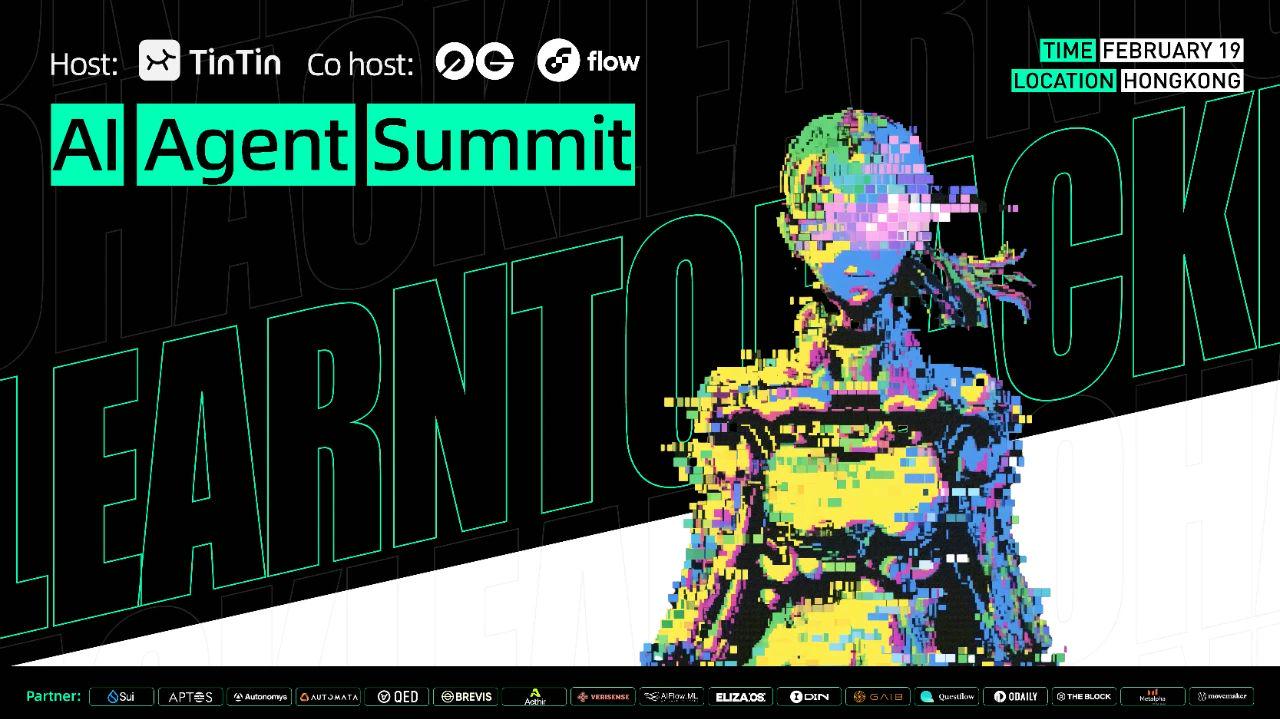
In order to promote the development of AI agent technology and enhance the cohesion and influence of the developer community, the first AI Agent Summit was successfully held in Hong Kong, China on February 19, 2025. The summit was co-organized by TinTinLand, 0G and Flow , and brought together projects such as AiFlow.ML, ElizaOS, Sui, DIN, Autonomys, Automata Network, Aptos, QED, Brevis, Aethir, Verisense, ai16zdao, GAIB, Questflow, Odaily, The Block, Metalpha, etc., to jointly discuss cutting-edge topics such as DeFi, public chains, infrastructure, privacy computing and AI-enabled intelligent collaboration . This summit not only provides a high-quality technical exchange platform, but also further promotes the implementation of AI in the decentralized world. The number of registrations for this event exceeded 1,000+ , and the venue was full, fully demonstrating the industry's high attention and expectations for AI agent technology.
🔍 Let's review the highlights of this event together~
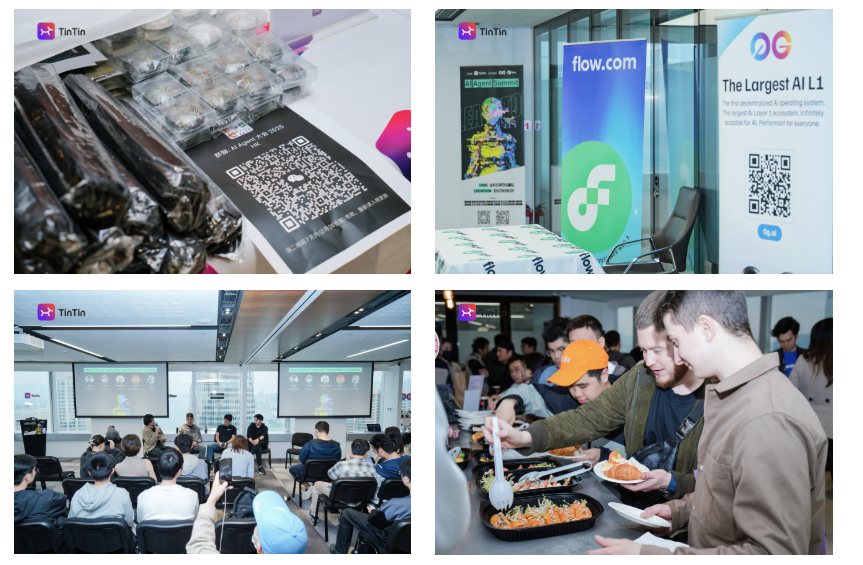
🐼 Towards a decentralized and scalable AI era for all — Dialogue with 0G Co-Founder & CTO Ming Wu
AI’s “black box dilemma” and blockchain’s breakthrough
"If 70% of social systems in the future are dominated by AI, can we trust an unverifiable 'black box'?" Ming Wu first raised this sharp question at the beginning of the theme sharing. He pointed out that the current AI system lacks transparency in key links such as data sources, model bias, and ethical decision-making, and the centralized architecture further exacerbates the risks. Once AI is out of control or maliciously manipulated, the consequences may be far beyond imagination. He emphasized that the traceability, decentralization and incentive compatibility mechanism of blockchain technology are the key to solving this dilemma.
Team: Top geek team, aiming at a trillion-dollar market
Ming Wu introduced that 0G's confidence comes from a cross-border team that understands both AI and blockchain. The core members of the team have created two unicorn companies with a valuation of over $1 billion, with a total financing of over $500 million. They have 8 computer science doctors, 5 gold medals in the Informatics Olympiad, and top cryptography experts. In addition, the team size has exceeded 40 people, covering the full stack of distributed storage, AI model training, on-chain governance, etc. "We are not only technical geeks, but also business practitioners." We are not only technical geeks, but also business practitioners." He revealed that 0G has received $325 million in funding commitments from top Web3 investment institutions such as Hack VC, Bankless, and Delphi, and has established in-depth cooperation with more than 300 ecological partners. At present, the daily transaction volume processed by the 0G test network has exceeded 10 million, verifying the high scalability of its underlying architecture.
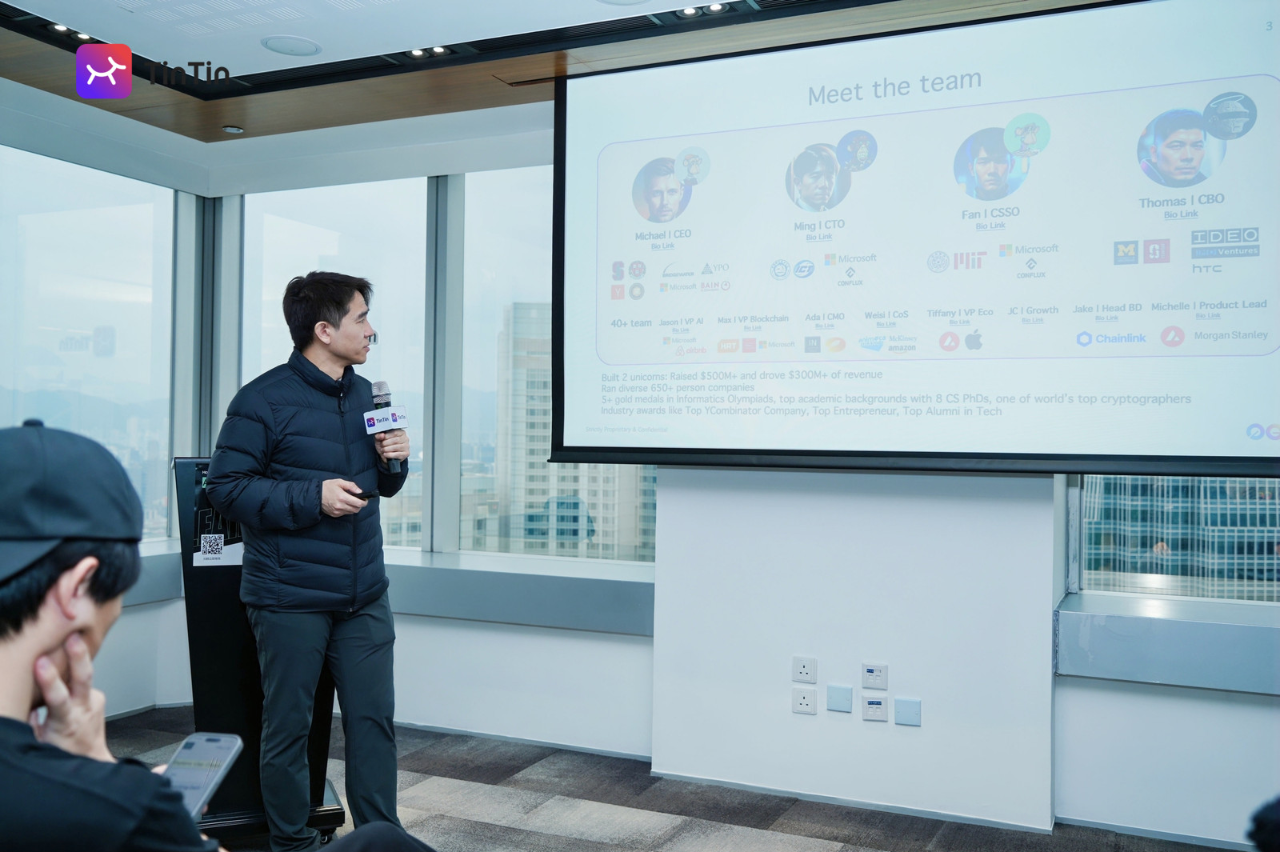
Technological nuclear weapons: million-fold performance leap, 80% cost reduction
Faced with the industry challenge that decentralized AI requires a million-fold upgrade of data infrastructure , Ming Wu demonstrated 0G’s disruptive solution:
Storage network : Through sharded storage, parallel consensus and KZG zero-knowledge proof, it achieves an ultra-high throughput of 2GB/s, and reduces costs by 80% compared to AWS;
Computing network : supports large-scale model training and real-time reasoning, and is compatible with FHE (fully homomorphic encryption) privacy protection;
Service ecosystem : The first universal AI service market, integrating verification technologies such as OpML, zkML, and TeeML to ensure the traceability of data, models, and assets on the chain.
Ming Wu said that 0G's deAIOS allows developers to use trusted AI services like calling APIs. He cited the example that 0G has achieved the first storage file verification completed by AI agent interaction and launched a new standard for AI agent NFT . In addition, Ming Wu specifically mentioned that 0G has launched an $88 million ecosystem plan covering developer tools, hardware accelerators and compliance frameworks, with the goal of allowing every participant to create value in an open ecosystem .
🔑 Building AI Agent based on Flow on-chain account management —— Flow DevRel, APAC Bohao Tang in-depth analysis
From CryptoKitties to AI Agents
The Evolution of Flow Blockchain
Bohao Tang emphasized in his opening speech that Flow always believes that the consumer application of Web3 is the key to the future. He reviewed the starting point of Flow - CryptoKitties , a game that paralyzed the Ethereum network with only 14,000 users , exposing many pain points of blockchain technology at the time in terms of complex on-chain logic , new user guidance and scalability . The emergence of Flow provides new solutions to these problems. Flow not only focuses on the underlying optimization of blockchain technology, but also aims to build a developer-friendly and user-friendly Web3 ecosystem, so that decentralized applications can truly reach the public.
Flow’s core advantage: the perfect balance between scalability and decentralization
Flow achieves high performance, decentralization, and developer-friendliness through a series of unique designs. It achieves high throughput through the separation of consensus and computation , and adopts a MEV-free design to optimize transaction fairness. In addition, Flow improves data availability, transaction sorting, execution, and settlement efficiency through a dedicated node architecture , allowing Web3 applications to break through the limitations of traditional blockchains. "Flow allows Web3 to truly scale without sacrificing decentralization," said Bohao Tang.
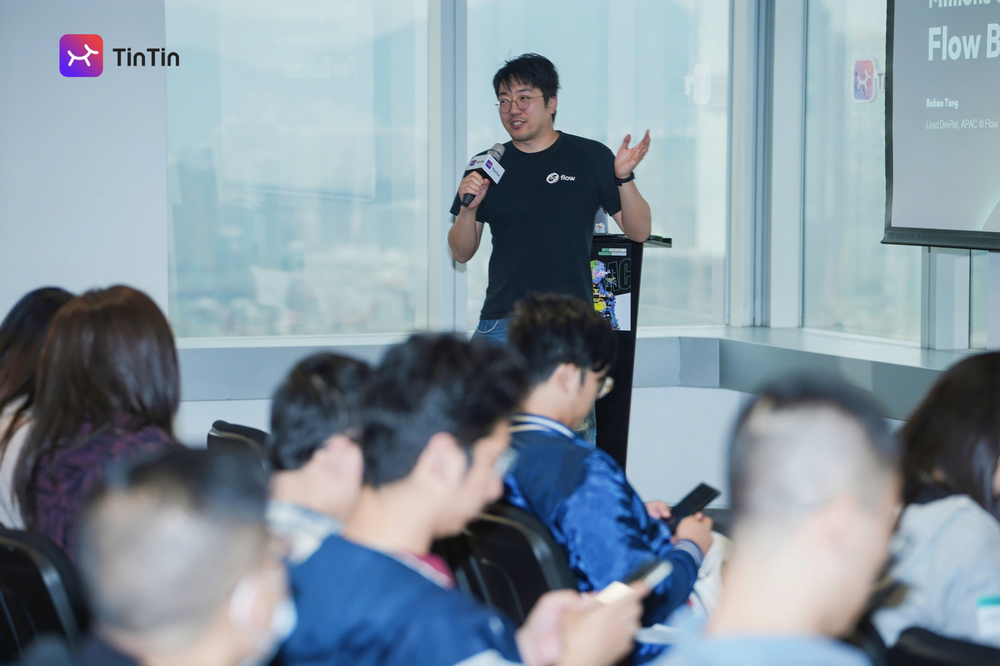
How Flow empowers AI Agents
Innovation in account management and trading models
Tang focused on how Flow simplifies account management for AI Agents through its Native Account Abstraction and Cadence programming language. Flow supports multi-private key control, multi-contract deployment, and stores all assets in accounts as resources. This design not only improves security, but also enables AI Agents to seamlessly handle complex on-chain operations.
Building the future of Web3 starts with Flow
Flow is not just a blockchain, it is an infrastructure built for future Web3 applications. Tang concluded. With the popularity of AI Agent, Flow's decentralized account management and efficient transaction model will become an important force in promoting the consumerization of Web3. Flow's vision is to enable every user to have their own AI Agent and achieve true autonomy and security through blockchain technology. At the end of the sharing, Tang called on developers to join the Flow ecosystem and use the powerful functions of Cadence to build the next generation of AI Agent applications. Developers can quickly get started and start building future Web3 applications through Flow's official documentation and developer community.
⏳Roundtable Discussion 1: DeFi and Public Chain Opportunities in AI Narratives
The first roundtable was hosted by TinTinLand Community Manager Tracy, and the guests included Sui APAC DevRel Lead Henry, Flow DevRel, APAC Bohao Tang, Aptos Ecosystem Development Manager Kevin, and Metalpha Ecosystem Manager Max . The discussion revolved around how AI affects DeFi and the public chain ecosystem, and explored the application prospects of AI in smart contract optimization, on-chain risk control, and user experience improvement.
In recent years, AI narratives have rapidly heated up in the Web3 field, and major public chains and DeFi projects have explored the potential of AI technology. Guests generally believe that the application of AI in DeFi and public chain ecology will promote infrastructure optimization, intelligent risk management, and a deep upgrade of user experience. AI has broad application prospects in the DeFi field, including intelligent risk control, automated trading strategy optimization, and fraud detection . For example, AI can analyze market data in real time, optimize DeFi trading strategies, and improve KYC (identity authentication) and AML (anti-money laundering) capabilities, lowering the user entry threshold.
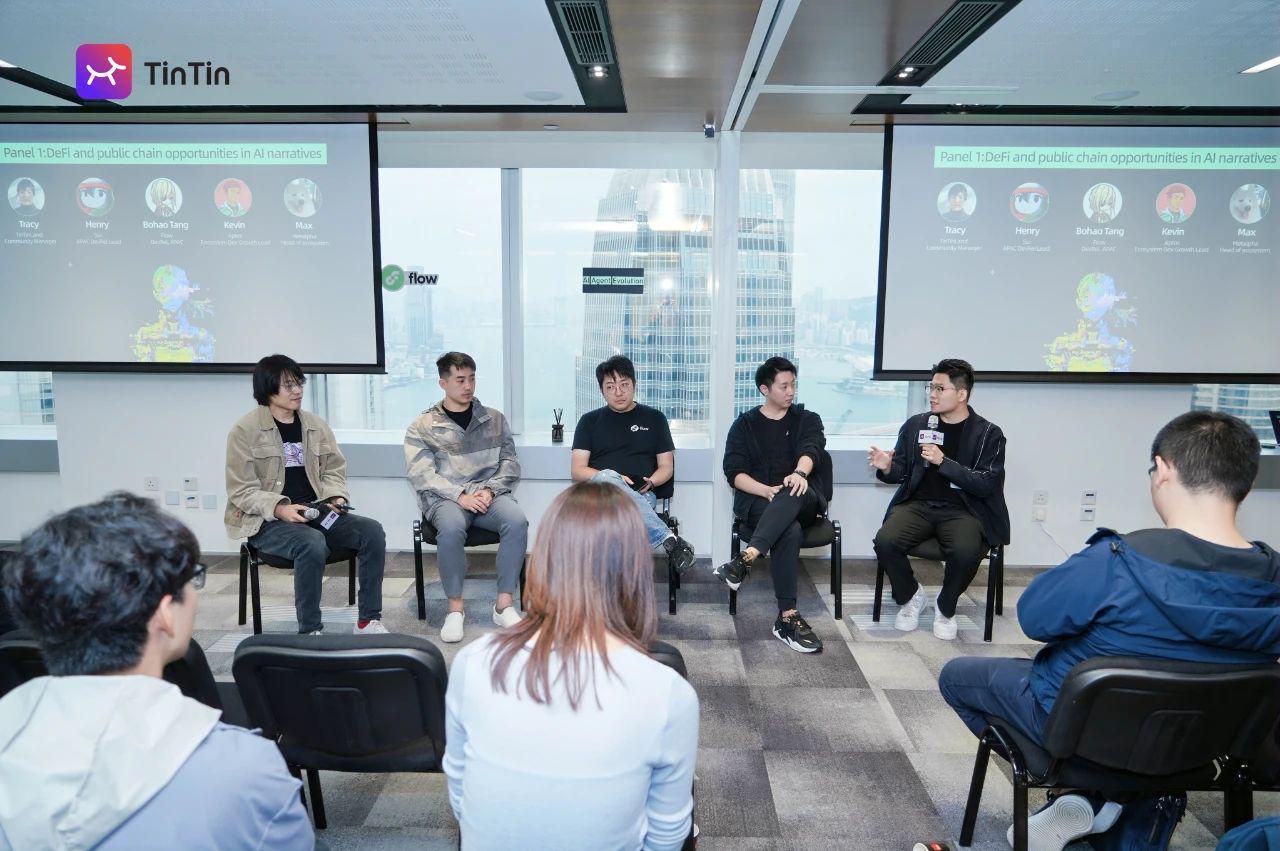
For public chains, AI mainly plays a role in smart contract optimization, computing power allocation and data analysis . For example, AI can automatically detect smart contract vulnerabilities, improve on-chain security, and optimize consensus algorithms to make on-chain operations more efficient. Guests shared AI application cases in their respective ecosystems, such as Sui's breakthrough in on-chain data analysis, Flow's innovation in AI Agent account management, and Aptos' exploration of AI-enabled smart contract execution.
At the end of the roundtable discussion, the guests looked forward to the long-term impact of AI on DeFi and the public chain ecosystem. They believe that in the future, the combination of AI and Web3 will be closer, promoting the development of automated finance, intelligent analysis of on-chain data, and personalized user experience . At the same time, with the development of AI agents, each Web3 user may have his or her own intelligent assistant to simplify blockchain interactions and improve the overall experience.
⏳Roundtable Discussion 2: Breakthroughs in AI Agent x Web3 Infrastructure and Privacy Computing
Then, the second roundtable was hosted by Coco Zhang , and the guests included Automata Network co-founder Deli Gong, QED founder and CEO Carter Feldman, Brevis Co-founder Michael, Aethir co-founder and CSO Mark Rydon, and Verisense Network co-founder Helena . The discussion focused on the infrastructure challenges of AI Agent in the Web3 ecosystem, and how to ensure data security through privacy computing and achieve the scalability of decentralized AI.
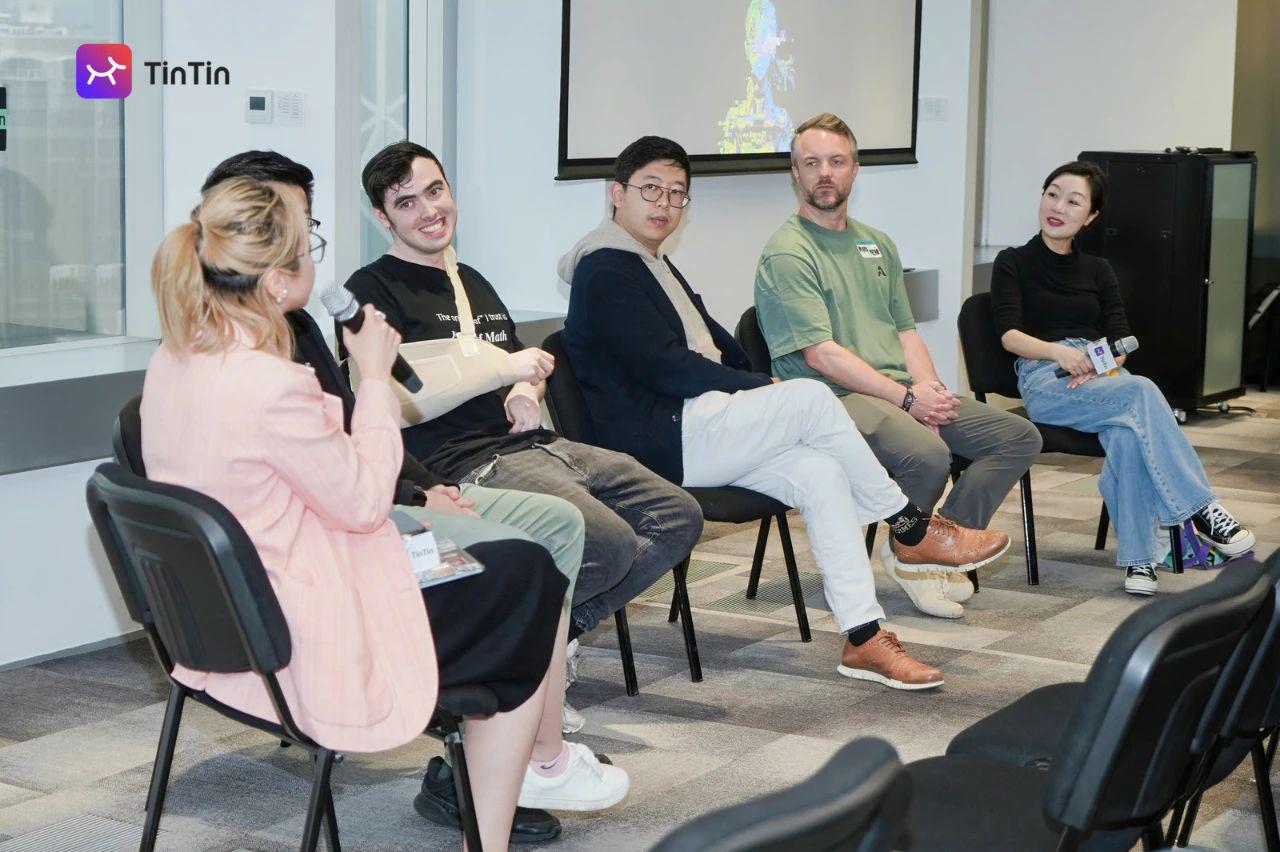
AI requires powerful computing power and data storage support, and decentralized networks still face challenges in this regard. Guests shared their respective projects' solutions in computing power scheduling, decentralized storage, and efficient data synchronization . For example, Aethir solves the resource allocation problem of AI training through decentralized cloud computing, and Automata implements a verifiable, secure, and accountable execution framework for AI systems through privacy computing solutions such as trusted execution environments.
The guests agreed that in the future, AI Agent needs to cooperate with more Web3 ecosystems to build a cross-chain AI computing framework and realize truly distributed AI training and reasoning. In addition, privacy-preserving AI solutions will also become an important part of the Web3 ecosystem, promoting a safer and more transparent AI computing environment.
⏳Roundtable Discussion 3: AI Agent x Web3 Reshapes Intelligent Collaboration in a Decentralized World
The last roundtable of the event was hosted by Mandy Wang, founder and CEO of Odaily , and guests included Peter Nguyen, Chief Marketing Officer of Autonomys Network, Igor Lessio, Head of AiFlow.ML, Jake Choi, Head of Growth at 0G, Kony, Founder and CEO of GAIB, and Bob Xu, Founder of Questflow Labs . The discussion revolved around the collaboration capabilities, key challenges, and future application scenarios of AI Agents in the decentralized ecosystem , and explored how AI Agents can enhance the governance, transaction, social, and gaming experience of Web3.
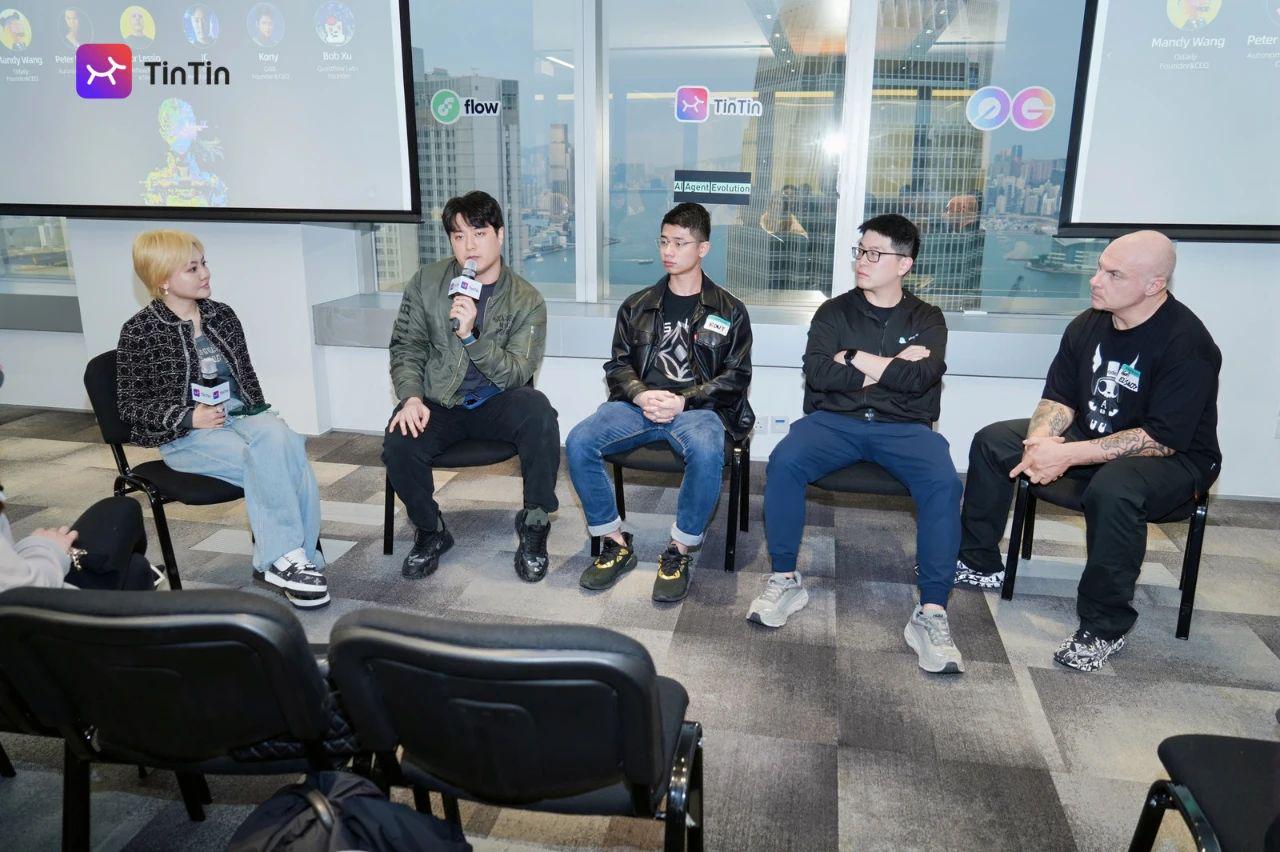
Guests shared that AI Agent is profoundly transforming the Web3 ecosystem through automated task execution, intelligent data analysis, and personalized recommendations. For example, in DAO governance, AI Agent can automatically analyze proposal content, predict voting trends, and assist in governance decisions. In the DeFi field, AI Agent can help users dynamically adjust investment strategies to maximize returns.
The guests also mentioned the challenges faced by AI Agents in the Web3 ecosystem, including data silos, smart contract security, and AI decision transparency . Questflow shared their experience in using AI in Web3 collaboration and emphasized the necessity of combining smart contracts with AI. 0G and GAIB discussed how to optimize AI training methods to enhance the decision-making capabilities of decentralized AI Agents.
Social Interaction
As the last roundtable discussion came to an end, the atmosphere was still warm. The guests and audience had more in-depth exchanges on topics such as AI Agent and Web3 development trends . After the meeting, participants gathered in the exhibition area and social space and spontaneously formed groups for discussion. Some people had a heated discussion on the implementation plan of AI Agent in DAO governance , and some people communicated with public chain projects on the feasibility of cross-chain AI computing . The interactive exchanges on the spot further promoted the possibility of cooperation. Topics such as AI agent, decentralized finance, and privacy computing are still expanding. How to land and develop in the future still requires continuous exploration by the industry. The discussion has come to an end for the time being, but new opportunities and cooperation are brewing, and we look forward to more innovations landing in the Web3 ecosystem.
